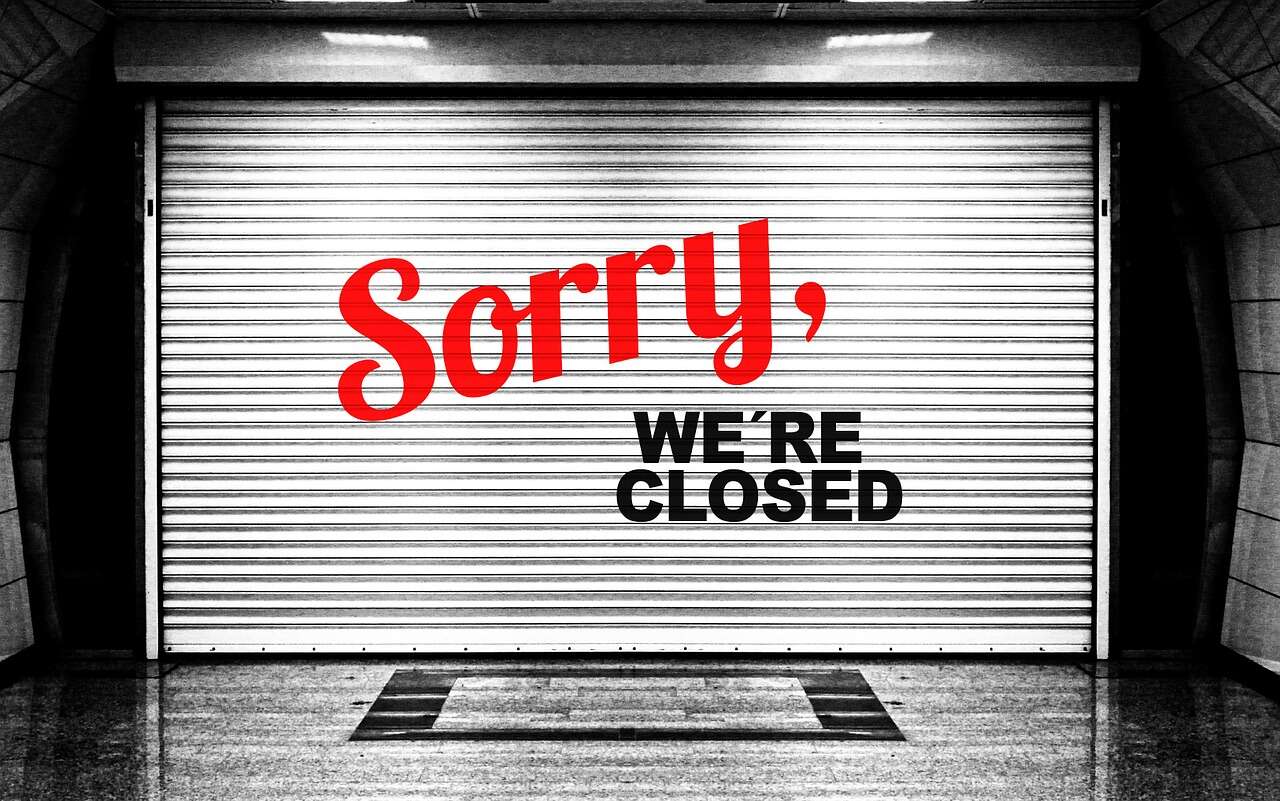No matter the reason for closing your business, you can’t just stop and leave without turning back. If you do that, you might face fines and other surcharges even if you’re no longer earning money from that business.
Here’s a guide on how to close a business in the Philippines – and free yourself from future headaches.
How to Properly (and Legally) Dismiss Your Employees
Don’t shock your employees and tell them they no longer have a job on the day you close your shop. Instead, inform them at least 30 days of the business closure.
It isn’t just a matter of respecting their feelings. They can actually file an illegal dismissal lawsuit if you don’t inform them ahead of time.
Their date of termination can be on the day you end your business, but make sure they know.
You also need to inform the DOLE (Department of Labor and Employment). Hit two birds with one stone by informing the DOLE and your employees on the same day.

Legal Closure of Your Business with Government Agencies
Remember that you filed many permits and licenses to open your business.
When you close, you also have to inform them. Or else you can face fines and surcharges because the government actually assumes that the business is still in operation.
LGU
Go to your LGU to file a notice of closure – this is important if you filed a barangay permit and/or mayor’s business permit.
If you have both, be sure to also file closure at both offices.
BIR
File for an Application for Closure of Business at the RDO where your business is registered (the same one you went to when applying for your BIR business permit).
SSS, Philhealth and Pag-IBIG
If you also applied as employer with the SSS, Philhealth, and Pag-IBIG, then it also makes sense to file for legal closure.
Go to their respective offices and file the business closure. Note that you’re likely need to pay up all loans or other fees relating to these agencies.
- Applying for Business Closure with the SSS
- How to Close Your Business with Philhealth
- How To Close Your Business With Pag-IBIG
DTI or SEC
Depending on your type of business ownership, you either have to file for closure with the DTI (Department of Trade and Industry; for sole proprietorship) or SEC (Securities & Exchange Commission; for corporations).
Go to the office where you filed your business licenses to get your closure clearance.
Other Government Agencies
In case you were granted other permits from agencies like the BOI (Board of Investments), PEZA (Philippine Export Zone Authority), LTFRB (Land Transportation Franchising and Regulatory Board), etc., then you also have to visit them to file for closure.
General Requirements
The closure process can vary but be sure not to miss any of them no matter the hassle you face in going through the steps.
The requirements also vary but be sure to prepare the following and all the other documents these offices need (be sure to bring the original and several photocopies):
- Registered business name
- All the clearances, permits, licenses, and certificates of registration
- Financial statements
You also need to inform these agencies about your proposed date of closure and the reason/s why you’re closing your business.
- Rosmar Sells Php100 “Pares Overload” With Unlimited Swimming & Outing At Resort - April 23, 2024
- Viral Ice Seller ‘Miss Yelo’ Earns Php90k a Month - March 4, 2024
- Unique ‘Lechon Manok’ Cooked in a Clay Pot Goes Viral - February 29, 2024





